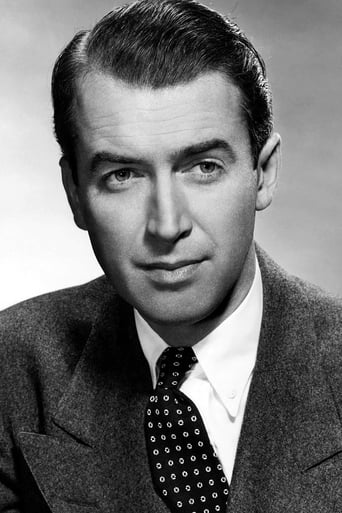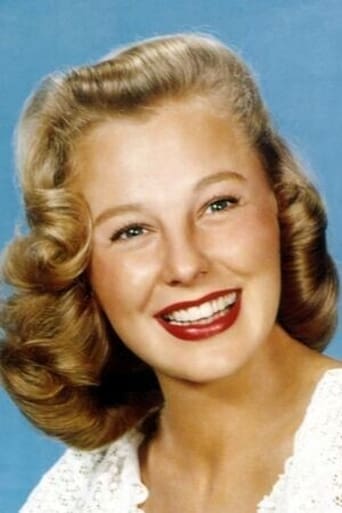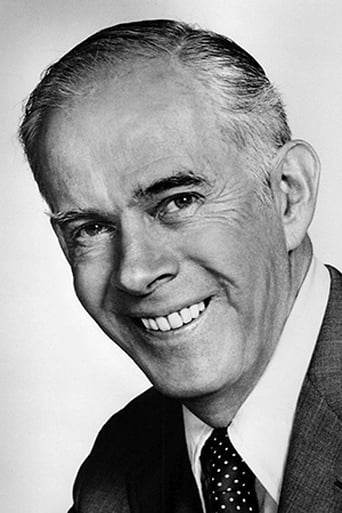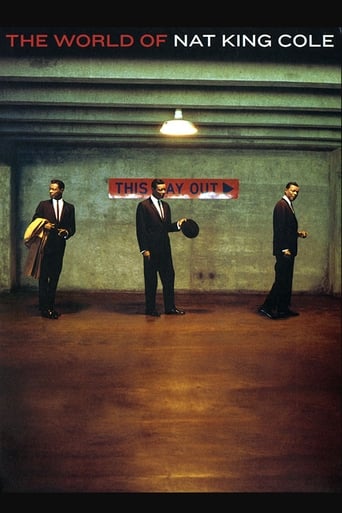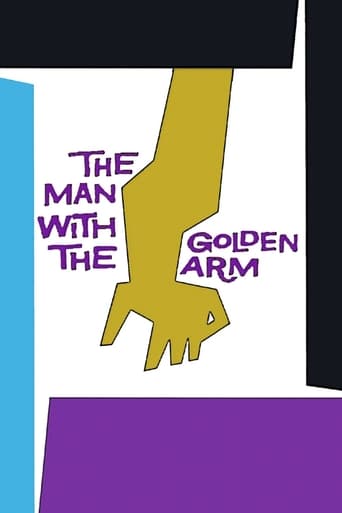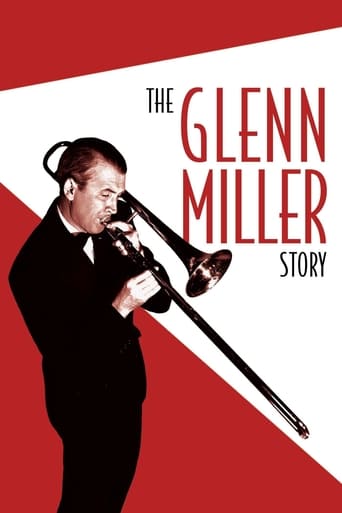
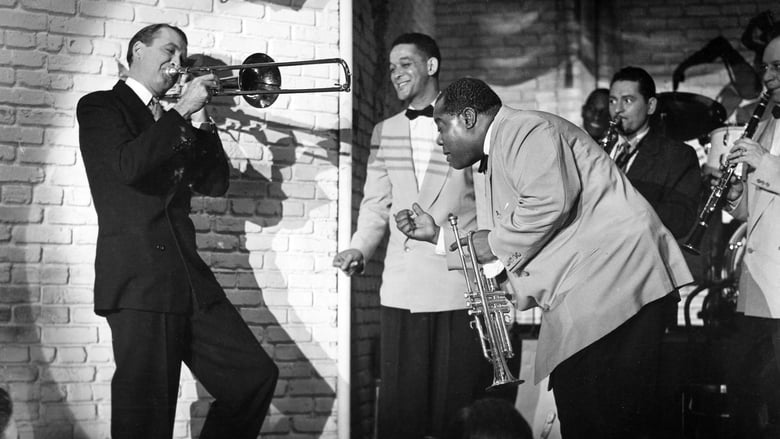
The Glenn Miller Story (1954)
A vibrant tribute to one of America's legendary bandleaders, charting Glenn Miller's rise from obscurity and poverty to fame and wealth in the early 1940s.
Watch Trailer
Cast
Similar titles
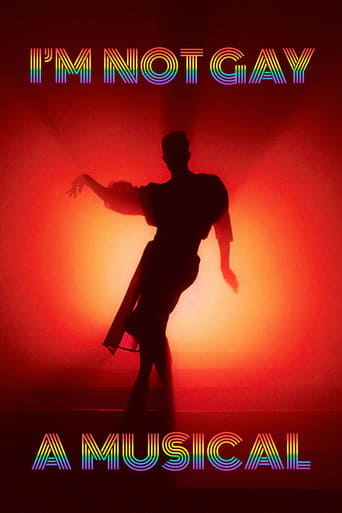

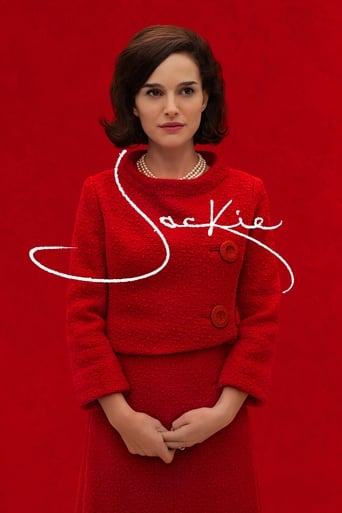
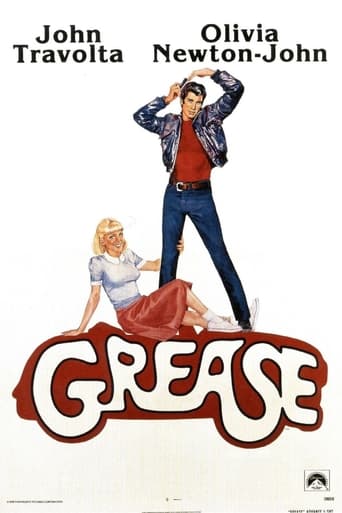
Reviews
Good films always raise compelling questions, whether the format is fiction or documentary fact.
This is a small, humorous movie in some ways, but it has a huge heart. What a nice experience.
It is an exhilarating, distressing, funny and profound film, with one of the more memorable film scores in years,
Actress is magnificent and exudes a hypnotic screen presence in this affecting drama.
The unemployed trombone player Glenn Miller (James Stewart) is always broken, chasing his sound to form his band and hocking his instrument in the pawn house to survive. When his friend Chummy MacGregor (Henry Morgan) is hired to play in the band of Ben Pollack, the band-leader listens to one Glenn's composition and invites him to join his band. While traveling to New York, Glenn visits his former girlfriend Helen Berger (June Allyson), in Boulder, Colorado, and asks her to wait for him. Two years later he quits the band and proposes Helen that moves to New York to marry him. After the success of "Moonlight Serenade", Glenn Miller's band becomes worldwide known and Glenn and Helen and their two children have a very comfortable life. Duting the World War II, Glenn enlists in the army and travels to Europe to increase the moral of the allied troops. In the Christmas of 1944, he travels from London to Paris for a concert to be broadcast; however his plane is never found in the tragic flight.Glenn Miller was the great idol of my father and I recall that in my childhood, he loved the albums (long-plays) of this American musician and usually commented his tragic end. I do not know how many times I listened to hits like "Moonlight Serenade", "String of Pearls", "Pennsylvania 6-5000", "Little Brown Jug", "In the Mood", "Chattanooga Choo Choo" and other Glenn Miller's musics when I was a kid. This is the first time that I watch "The Glenn Miller Story" and the awesome combination of the music of Glenn Miller and James Stewart. Further, the lovely June Allyson shows a wonderful chemistry with James Stewart and together with the stunning Louis Armstrong, Frances Langford, Ben Pollack, Gene Krupa, Barney Bigard, James Young, Marty Napoleon, Arvell Shaw, Cozy Cole, Babe Russin and others personalities, they make a great tribute to a magnificent American musician and composer. My vote is eight.Title (Brazil): "Música e Lágrimas" ("Music and Tears")
Of all the musical biopics I've seen, The Glenn Miller Story ranks pretty low. That's not to say it was bad; I'm just saying I've enjoyed the others much more. Films like "The Five Pennies" (about Red Nichols), "Til the Clouds Roll By" (Jerome Kern) or even the more recent 70s "Lady Sings the Blues" (Billie Holiday) were much more engaging and memorable to me because those films explored a dramatic conflict in the artist's life. I'm not talking about car chases & explosions; I just think a movie should focus on a particular difficulty that the protagonist must face: recurring obstacles, internal demons, or good old artistic pathos. Something to make it seem like there's a point to the struggle.The Glenn Miller Story had no such conflict. Aside from a few money problems early on (always solved by hocking his horn at a local pawn shop), everything seems to go peachy keen. The whole film is like a gentle sled ride down a bunny slope. This is odd because Glenn's true life story had plenty of drama that could have been brought to the screen. Instead these moments were glossed over--almost as if the filmmakers were purposely trying to avoid any tension or passion. The "conclusion" was handled so vaguely I had to run over to wikipedia to read what really happened.While I was at wikipedia, I learned a whole lot of other interesting things about Glenn Miller--none of which warranted more than a 30 second scene in the film. I'm talking about things like Glenn's "new sound" & how he struggled with it, his efforts to revolutionize the military's musical format & the tremendous resistance he encountered from officers & critics, and, as I mentioned, the VERY intriguing conclusion to his career & life. These major points were presented insufficiently in the film. It seemed like the filmmakers chose to focus more on the feel-good scenes like wedding parties, happy gigs and the happy couple cooing to each other (without ever showing how they fell in love in the first place). I was left in a state of disbelief.It's hard for me to flunk any Jimmy Stewart film, so I'll probably try giving it another viewing someday. Maybe it's a good flick for a warm summer day when you don't want too much drama. But for now, I prefer the other films I mentioned, particularly "The Five Pennies" which really gives you an appreciation for how hard musicians struggle to reach success--and Louis Armstrong vs. Danny Kaye in duelling trumpets is worth the price of admission!Another good biopic which convincingly shows an artist's struggle (though fictionalized) is "Young Man with a Horn" with Kirk Douglas and Lauren Bacall. If you really want a artistic pathos, of course go for AMADEUS!
Glenn Miller suffered from the same criticisms that jazz musicians (Hancock, Turrentine, Hubbard) I listened to in the 70's suffered: he is too commercial. Jazz is supposed to allow for improvisation according to the "purists." Miller's heavily orchestrated music left little room for that.No matter, he dominated the charts and jukeboxes of the 40's just as Elvis and the Beatles would in the following decades because he developed a new sound that the kids went for.This film, starring the great James Stewart (Mr. Smith Goes to Washington, The Philadelphia Story, It's a Wonderful Life) and June Allyson (Too Young to Kiss, The Stratton Story), with superb support by Harry Morgan ("M*A*S*H", "Dragnet") shows the struggles Miller went through to achieve his sound and his final success as a band leader up to his death in a plane crash (a la Buddy Holly, Ritchie Valens, and Jiles Perry Richardson).The film not only has great music by Miller, but some of the big stars of the day in Frances Langford, Louis Armstrong, Gene Krupa, and Ben Pollack.A well deserved Oscar for Sound, and nominations for the musical score and the screenplay.Trivia: Like Amelia Earhart, Miller has never been found.
The bloom is off the rose of the Stewart/Allyson partnership from "The Stratton Story" (1949). They still have a nice screen rapport, but no are scenes as good as in their initial effort. Instead, the sad events in the Millers' life seem to be accompanied by a cheerful tear and stiff upper lip; for example, watch how they handle not having children.You definitely get a sense of the importance of the subject, musician Glenn Miller; but, you also get a sneaking suspicion this is a VERY glossed over production. The dancers during one of Miller's most exciting numbers aren't even as excited as the elderly dancers on an old "Lawrence Welk Show" rerun.There are some serious editing/continuity distractions - worse, they are so obvious they spoil the important scene when Mrs. Miller and friends listen to the Christmas program. The filmmakers practically hit you over the head with how its going to end; if you don't know, you'll easily guess. This one should be good for fans of Mr. Miller, Mr. Stewart, and Ms. Allyson; but, I'd like to see a more accurate Glenn Miller film story. ***** The Glenn Miller Story (1954) Anthony Mann ~ James Stewart, June Allyson, Harry Morgan
